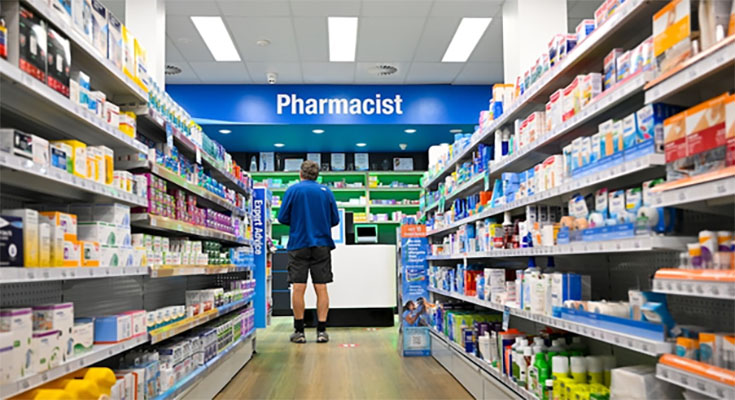As Indonesia continues to develop its healthcare infrastructure, the pharmacy sector stands at the forefront of innovation. The integration of cutting-edge technology, new approaches to patient care, and evolving regulatory frameworks are transforming how pharmacies operate and deliver services. This article explores the key innovation trends shaping the future of Indonesian pharmacy and their potential impact on the industry. Visit pafikotasumedangutara.org
1. Digital Health Solutions
Telepharmacy: Telepharmacy is rapidly gaining traction in Indonesia, driven by the need for accessible healthcare services and the advancements in digital technology. Telepharmacy enables pharmacists to conduct consultations, manage prescriptions, and provide medication counseling remotely. This innovation addresses the challenge of healthcare accessibility, particularly in remote and underserved regions. By leveraging video conferencing and online platforms, telepharmacy is making pharmacy services more inclusive and efficient.
Mobile Health (mHealth) Applications: Mobile health applications are becoming increasingly popular, offering a range of services from medication reminders to health tracking. Indonesian pharmacies are integrating mHealth solutions to enhance patient engagement and adherence. These apps can provide personalized medication management, health tips, and real-time health monitoring, thereby improving patient outcomes and fostering proactive health management.
2. Pharmacy Automation and Robotics
Automated Dispensing Systems: Automation in pharmacies is revolutionizing medication dispensing and inventory management. Automated dispensing systems, including robots and automated counting machines, are enhancing efficiency and accuracy. These systems reduce human error, streamline workflows, and ensure the timely dispensing of medications. In a country like Indonesia, where the demand for pharmacy services is high, automation is crucial for improving operational efficiency and patient safety.
Robotic Systems: Robotic technology is being increasingly adopted in pharmacies for tasks such as medication dispensing, compounding, and packaging. Robots can handle repetitive tasks with precision, freeing pharmacists to focus on more complex and patient-centered activities. The use of robotics in pharmacies is expected to grow, driven by the need for improved accuracy, efficiency, and consistency in medication management.
3. Personalized Medicine and Pharmacogenomics
Pharmacogenomics: Pharmacogenomics, the study of how genetic variations affect drug response, is emerging as a significant trend in Indonesian pharmacy. By analyzing patients’ genetic profiles, pharmacists can tailor drug therapies to individual needs, optimizing efficacy and minimizing adverse reactions. This personalized approach to medication is transforming the way treatments are prescribed and managed, leading to more effective and individualized care.
Tailored Drug Therapies: Personalized medicine is extending beyond pharmacogenomics to include customized drug formulations and dosing regimens. Indonesian pharmacies are exploring ways to provide personalized medication solutions based on patient-specific factors, such as age, weight, and health conditions. This trend reflects a broader movement towards precision medicine, aiming to enhance therapeutic outcomes and patient satisfaction.
4. Enhanced Patient Care and Services
Medication Therapy Management (MTM): MTM is becoming a cornerstone of patient care in Indonesian pharmacies. MTM involves a comprehensive review of patients’ medications to ensure optimal therapeutic outcomes and address any medication-related issues. This approach not only improves medication adherence but also enhances overall health management, particularly for patients with chronic conditions. Pharmacies are increasingly adopting MTM services to provide more holistic and patient-centered care.
Pharmacy Clinics: The concept of pharmacy clinics is gaining momentum, with pharmacies offering additional health services such as health screenings, vaccinations, and minor medical procedures. Pharmacy clinics provide a convenient and cost-effective solution for accessing a range of healthcare services, particularly in areas with limited access to primary care facilities. This trend represents a significant shift towards integrating pharmacies into the broader healthcare system.
5. Innovative Drug Delivery Systems
Smart Drug Delivery Systems: Advances in drug delivery technology are introducing new ways to administer medications more effectively. Smart drug delivery systems, including wearable devices and implantable systems, are being explored to improve medication adherence and control. These systems can provide real-time monitoring and precise drug dosing, enhancing patient outcomes and reducing the risk of medication errors.
Nanotechnology: Nanotechnology is playing a role in the development of advanced drug delivery systems. Nanoparticles can be used to target specific cells or tissues, improving the efficacy and reducing the side effects of medications. In Indonesia, where access to advanced treatments may be limited, nanotechnology offers the potential for more effective and localized drug therapies.
6. Sustainability and Green Pharmacy Practices
Eco-Friendly Pharmacy Practices: There is a growing emphasis on sustainability within the pharmacy sector. Indonesian pharmacies are adopting eco-friendly practices to minimize their environmental impact. This includes reducing waste, implementing recycling programs, and using environmentally friendly packaging. Green pharmacy practices not only contribute to environmental conservation but also reflect a commitment to corporate social responsibility.
Drug Disposal Programs: Proper disposal of unused or expired medications is a critical issue. Pharmacies are implementing drug disposal programs to address environmental and safety concerns. These programs ensure that medications are disposed of in a manner that prevents contamination and reduces the risk of misuse. By promoting safe and responsible drug disposal, pharmacies contribute to environmental protection and public health.
7. Regulatory and Policy Innovations
Enhanced Regulatory Frameworks: The regulatory landscape for pharmacies in Indonesia is evolving to address emerging challenges and opportunities. New regulations are being introduced to ensure the safety, efficacy, and quality of pharmaceutical products. Pharmacies must navigate these regulatory changes while maintaining compliance and adapting to new standards. The evolving regulatory environment will impact various aspects of pharmacy practice, from drug approval processes to quality control measures.
Data Privacy and Security: As digital health solutions and electronic health records become more prevalent, data privacy and security are becoming increasingly important. Pharmacies are implementing robust data protection measures to safeguard patient information and ensure compliance with data protection regulations. Ensuring the confidentiality and security of patient data is essential for maintaining trust and safeguarding patient rights.
8. Professional Development and Education
Continuous Professional Development: The evolving pharmacy landscape requires pharmacists to engage in continuous professional development. Ongoing education and training are essential for staying abreast of the latest advancements in pharmaceutical science, technology, and patient care. Indonesian pharmacists are pursuing specialized training and certifications to enhance their skills and expertise, ensuring they can effectively navigate the changing healthcare environment.
Interprofessional Collaboration: The future of pharmacy will see increased collaboration between pharmacists and other healthcare professionals. Interprofessional teams will work together to provide comprehensive care, address complex health issues, and improve patient outcomes. This collaborative approach enhances the quality of care and ensures that patients receive well-rounded and coordinated healthcare services.
Conclusion
The pharmacy sector in Indonesia is experiencing a wave of innovation that is transforming how pharmacies operate and deliver care. From advanced technology integration and personalized medicine to enhanced patient services and sustainability initiatives, these trends are shaping the future of pharmacy in Indonesia. As the industry continues to evolve, pharmacies will play a crucial role in advancing healthcare, improving patient outcomes, and addressing the diverse needs of the Indonesian population. Embracing innovation and staying adaptable will be key to thriving in this dynamic and rapidly changing field.


